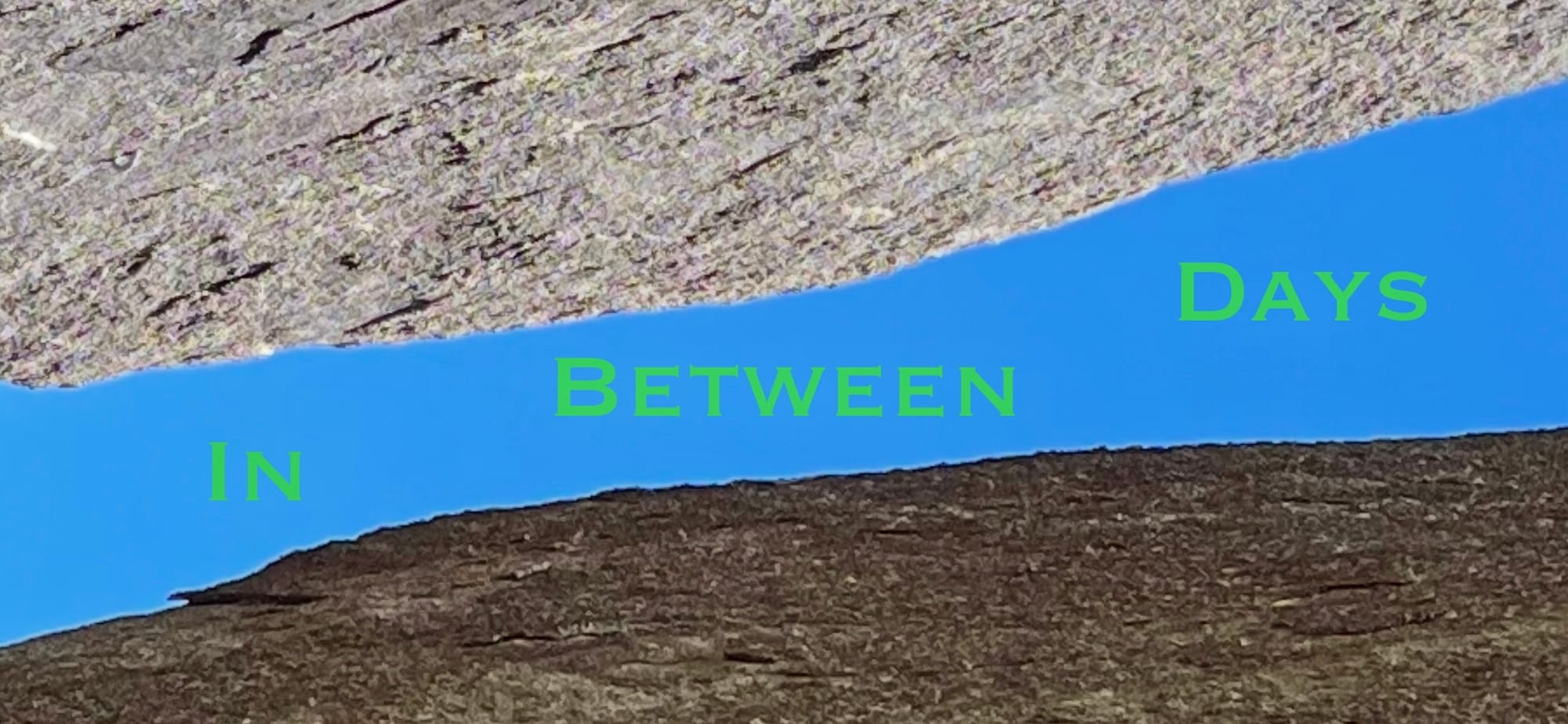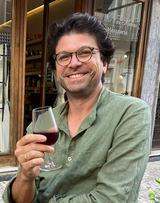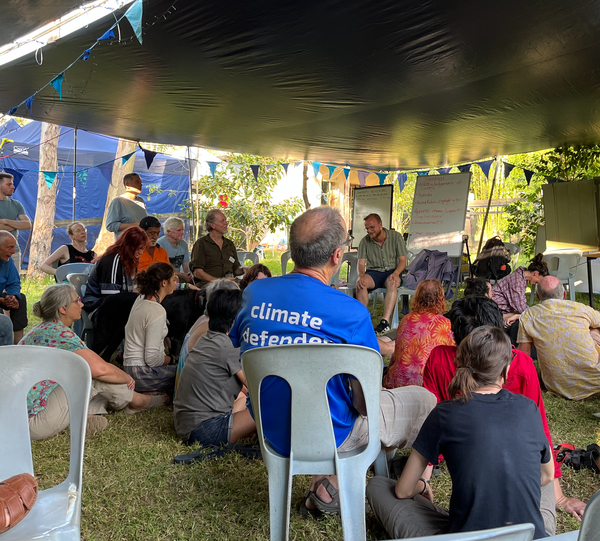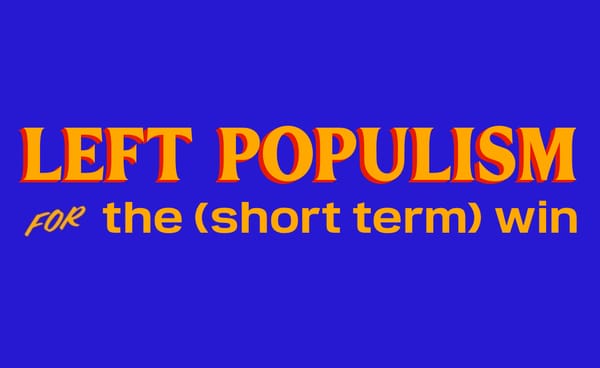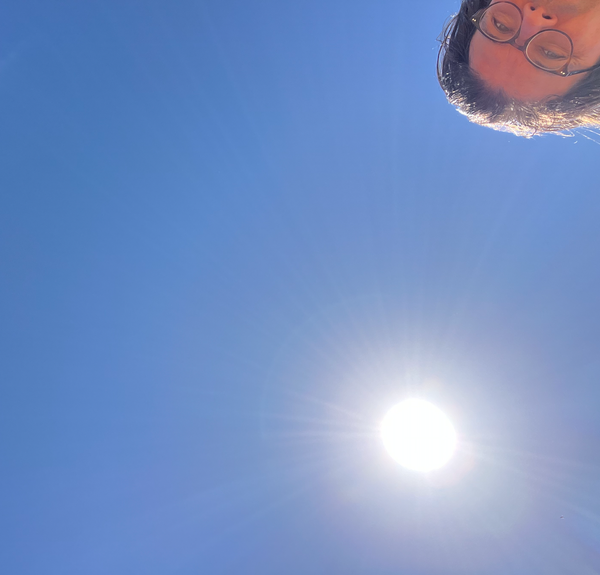Yesterday I got so old...
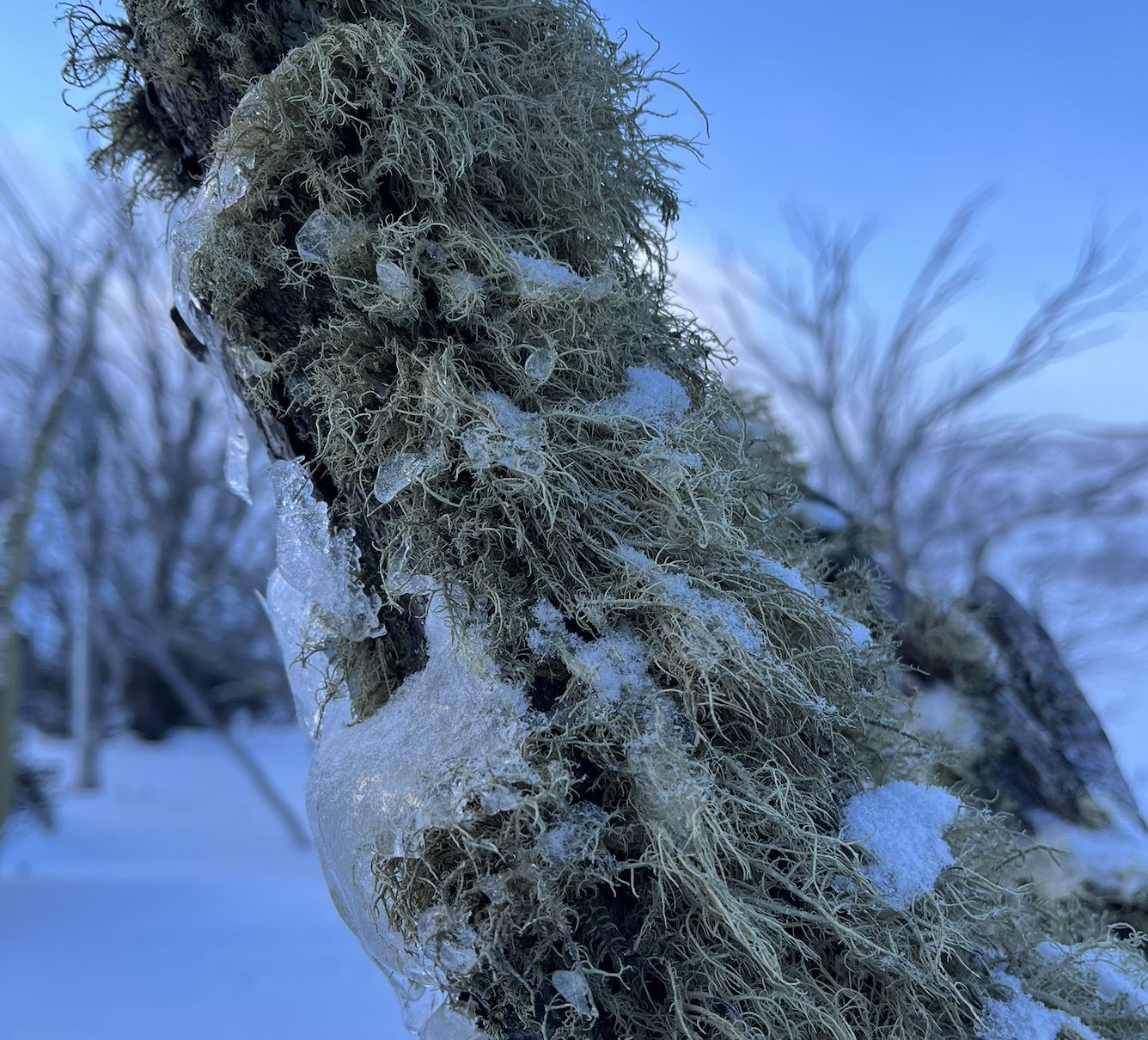
On noticing that the ground has slid away
It's like it was yesterday.
16 year old me bopping along to In Between Days at the back of the school bus, the jangly joy of the music jarring perfectly against the angsty lyrics to match my messy teenage emotions.
The blink of an eye. The slide of snow off fingers. And I'm 50.
No no, I promise, this blogletter isn't going to be about aging! I won't be kvetching about my aching bones too much... Although I do plan to lean in to my "old man yelling at clouds" act 😜
It's definitely going to be about time passing, though.
Or, more particularly, about how, as time passes, we so often fail ... well ... not so much fail to move with it, but perhaps fail to notice what's changing, fail to look up, look around, face up to the world as it actually is.
“Comprehension, in short, means the unpremeditated, attentive facing up to, and resisting of, reality—whatever it may be or might have been.”
Aaaand, we're back to Hannah Arendt! That was quick!
See, this is what's so powerful about between the no longer and the not yet, as she expands on it in Between Past and Future and elsewhere. It's so human. So wonderfully messed up and messy. And, in that, it feels actually helpful. Like it might offer a way from here.
Gramsci's interregnum implies a clarity about both the old world dying and the new struggling to be born. Yeah, sure, there are monsters (go on, click the link), but there's that kind of comfortable (comforting?) Marxian historical determinism to it. It Shall Happen! Have faith! Which leads to all sorts of means-justify-ends trouble I'm sure we'll discuss some time...
Arendt sees the crisis precisely in the lack of clarity. And also the opportunity is there. The space for living is there. The space for freedom, for creativity, for acting together in concert. For being.
The thing about the no longer is that we often don't notice it's gone. We know we're missing something - the shared reality, the common ground, the certainty that the world is as it is. But we keep acting as though it's there, papering over the cracks, as things get ever more fragile - you can't paper over an abyss. And while we're papering, we can't imagine our way to the not yet. Because the not yet isn't determined by anything other than how we choose to live - how we choose to live together and think together in this in-between.
The means are the ends. What we practise is what we learn to become.
This is why we have to look around and face up to the world as it is.
And this is why I'm so troubled by the failure of our movements for change to do that. The climate movement, but also the union movement, social justice movements, the Greens, what there is of a peace movement... all of us, by and large, are 99% of the time puttering along continuing to work for change as though the no longer were forever. We're working within a system that is actually over, expecting it to be able to solve the crises it created. So we keep practising the no longer instead of the not yet. We keep trying to paper over the abyss.
I'm intending to write quite a bit in the coming months expanding on why I think it's the case that the systems we're working within are actually dead. You can read a couple of articulations of my thoughts on that last year here and here, in the meantime, if you like.
The intention of this blogletter is to provide something of a provocation, a stimulus towards the facing up to and resisting of reality, and an exploration of ideas and pathways.
And, as important, the intention is to provide a space for sharing - sharing the confusion and the grief and the working through of ideas. Because SO MANY of us are finding ourselves in this in-between right now.
Of course we are.
You can't paper over an abyss.
**
16 year old me was into The Cure. And Shostakovich. And Björk and Bach. But was also a bushwalker and theatre kid who wanted to be David Attenborough. 16 year old me was mourning my beloved Opa, a hilariously funny and deeply loving man, a holocaust survivor whose three volume Marx sits on my bookshelf and who taught me before anyone else the concept that none of us shall ever be free until all are free. 16 year old me was worried about the environment, and about social injustice, and was fascinated by revolutions, but felt the world around me was pretty solid.
It was only a few years later, in 1999, that I read Tony McMichael's book, Planetary Overload, and came to the conclusion that the climate crisis and ecological collapse were likely to be the defining challenges of my lifetime, interweaving with human and social health and justice.
In the early 2000s, I became part of a tiny but passionate climate movement that made a bunch of strategic decisions about focus and approach (electricity over transport and food systems; mitigation over adaptation; seeking solutions within the political system, even if using tools like nonviolent direct action, rather than transforming the system) that seemed justified by the world we were living in then. We saw the crisis over the horizon, and talked about putting the foot on the brakes before we careened over the cliff.
What I think has got so many of us scrabbling around looking for the ground is the realisation that we're over the cliff. The ground is gone.
We can't paper over the abyss.
We're in freefall.
We're in between.
The world before is no longer. Continuing to act like it's there, like it can save us if we fix it, is insane. And I use that world carefully. It's insane.
We have to face up to the reality we're living in.
And then we have to live in it.
